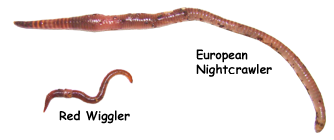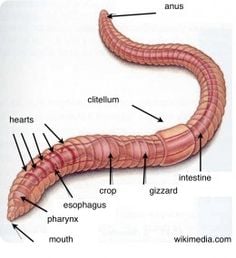Red Wiggler Worms - Reliable Decomposers for Your Garden Compost Bin
Wiki Article
Red Wiggler Worms Demystified: Opening the Tricks of Vermiculture for Greener Living and Nutrient-Rich Soil
In the world of lasting practices for enhancing soil top quality and advertising eco-conscious living, red wiggler worms play an essential yet often ignored duty. These modest creatures possess the amazing capability to transform organic waste into nutrient-rich castings that act as a powerful natural fertilizer. By delving right into the world of vermiculture, one can discover a myriad of benefits that prolong much past traditional composting techniques. Recognizing the ins and outs of caring for these worms, enhancing their setting, and utilizing their spreadings can bring about a greener way of life and much healthier dirt for plants to grow.The Duty of Red Wiggler Worms
Red Wiggler worms play an important role in composting systems by successfully breaking down organic issue into nutrient-rich spreadings. These starved eaters eat a range of organic materials, such as cooking area scraps, yard waste, and paper items. As they feed, the worms' gastrointestinal processes damage down the natural issue into a fine, dark, and nutrient-dense material understood as worm castings or vermicompost.The castings generated by Red Wiggler worms are very advantageous for soil health and wellness and plant growth. They are rich in necessary nutrients like phosphorus, potassium, and nitrogen, which are vital for sustaining healthy and balanced plant development. Additionally, worm spreadings consist of advantageous microbes and enzymes that assist boost soil framework, increase water retention, and enhance nutrient uptake by plants.
Benefits of Vermicomposting

Moreover, vermicompost, the nutrient-rich final result of vermicomposting, offers as an exceptional natural fertilizer and dirt conditioner. It enhances soil structure, enhances dirt aeration, and boosts soil wetness retention. These buildings add to healthier plants with stronger origin systems and better resistance to conditions and bugs. Vermicompost also enhances the soil with important nutrients like potassium, phosphorus, and nitrogen, advertising plant growth and total dirt fertility.
Furthermore, vermicomposting supports lasting horticulture techniques by providing a chemical-free and all-natural option to artificial fertilizers. Red Wiggler Worms. This ecologically friendly method not only improves the soil yet likewise helps in reducing reliance on hazardous chemicals, advertising a greener and a lot more sustainable means of gardening
Establishing Up a Worm Container
When developing a worm container for vermicomposting, proper arrangement is essential to make sure the success of the composting procedure. The initial action in setting up a worm bin is choosing a suitable container.After including the bed linen, present the red wiggler worms to the bin. The worms should after that be offered with food scraps such as fruit and veggie peels, coffee grounds, and eggshells.
On a regular basis keep an eye on the wetness degrees and temperature in the worm container to ensure optimum conditions for the worms. With proper configuration and upkeep, the worm container will successfully transform natural waste into nutrient-rich garden compost for your plants and yard.
Gathering Worm Castings
To successfully collect nutrient-rich worm castings from your vermicomposting system, an organized harvesting technique is vital. When it comes time to collect the worm spreadings, there are a couple of essential actions to follow to make certain a successful procedure.
Troubleshooting Common Issues
Recognizing and attending to usual obstacles that may develop throughout the webpage vermicomposting procedure is essential for preserving a effective and healthy worm bin. Including excess food scraps can lead to a build-up of wetness and acidity in the worm bin, potentially damaging the worms. One more concern is unpleasant odors emanating from the worm container.
In addition, if the worm populace is declining or the worms show up unhealthy, maybe due to environmental stressors such as extreme temperatures or pH degrees. Keeping track of these factors and making essential changes is essential for the wellness of the worms. By repairing these common problems quickly, vermicomposters can make sure a successful and smooth vermicomposting procedure while keeping a thriving worm populace.

Verdict
To conclude, red wiggler worms play an important duty in vermiculture by breaking down raw material right into nutrient-rich dirt. The benefits of vermiculture consist of greener living and boosted dirt top quality. Setting up a worm container is crucial for successful vermiculture, and harvesting worm castings supplies valuable compost for gardening. By understanding and repairing usual concerns, individuals can open the secrets of vermiculture for lasting living and healthier soil.As they feed, the worms' gastrointestinal processes damage down the natural issue into a fine, dark, and nutrient-dense material known as worm castings or vermicompost.
The spreadings created by Red Wiggler worms are highly helpful for soil wellness and navigate to these guys plant growth. Including excess food scraps can lead to an accumulation of wetness and level of acidity in the worm container, potentially damaging the worms.In addition, if the worm population is declining basics or the worms appear undesirable, it can be due to environmental stress factors such as extreme temperature levels or pH degrees. Setting up a worm container is vital for effective vermiculture, and gathering worm castings gives important garden compost for gardening.
Report this wiki page